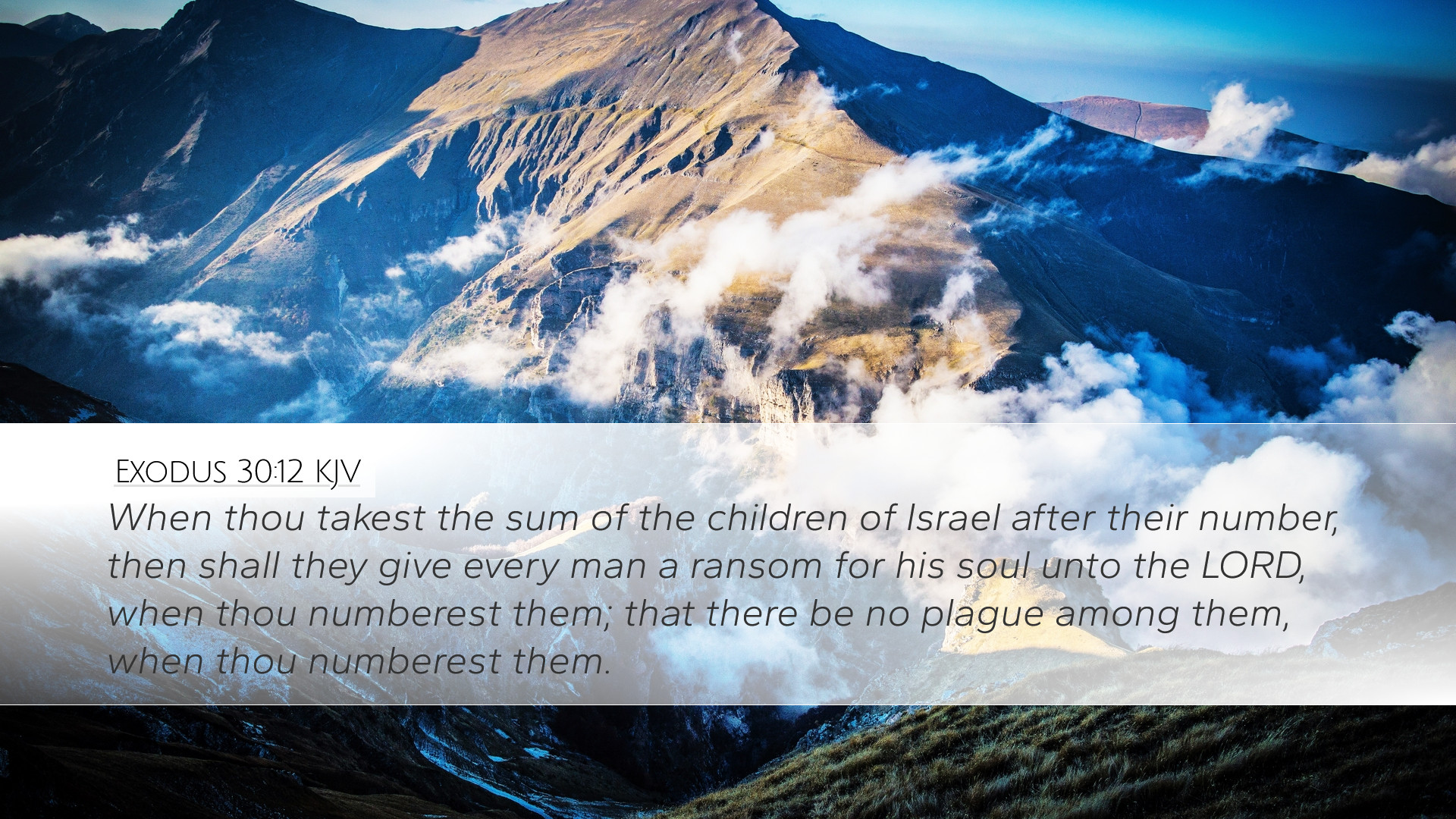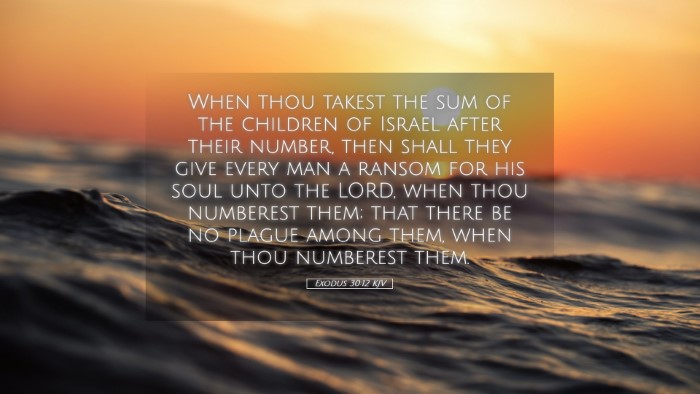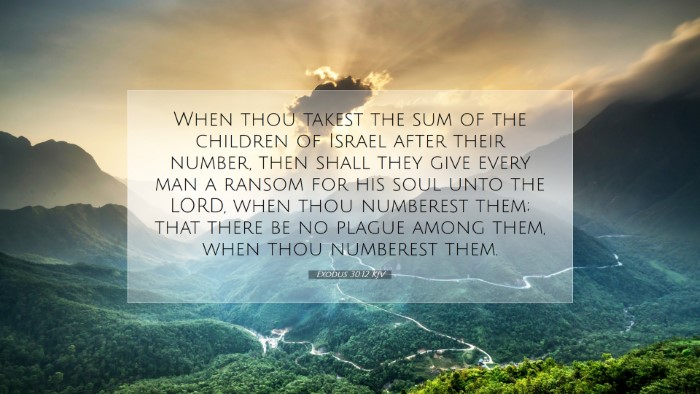Commentary on Exodus 30:12
Verse: "When you take the census of the Israelites to count them, each one must pay the Lord a ransom for his life at the time he is counted. Then no plague will come on them when you number them."
Introduction
This verse is part of the instructions given to Moses regarding the census of the Israelites. It reflects significant theological and practical considerations for the Israelite community. Commentaries from Matthew Henry, Albert Barnes, and Adam Clarke shed light on the depth of this single verse, emphasizing its implications for atonement, accountability, and divine protection.
The Purpose of the Census
Matthew Henry highlights that the census was not merely a numerical count of the people but was rooted in the idea of accountability before God. Each person counted was seen as significant in the eyes of the Lord, and therefore, the act of numbering them required a corresponding acknowledgment of their value and worth.
Albert Barnes adds that the census aimed to establish order and accountability within the Israelite camp. It served as a reminder of their obligations to God, as well as their need for divine protection and guidance as they journeyed through the wilderness.
The Ransom for Life
In this context, the requirement of a ransom is a vital aspect of the verse. Adam Clarke points out that this ransom signifies a theological understanding of atonement. The act of paying a ransom for one's life implies a recognition of sin and the need for redemption. This is reflective of broader biblical themes, foreshadowing the ultimate ransom paid by Christ for humanity's sins.
Matthew Henry elaborates that the ransom was not merely a monetary obligation but a symbol of the intrinsic value of life, suggesting that each person's life is precious to God. The payment served as a reminder of the seriousness of sin and the concept that it incurs a cost.
Protection Against Plague
The verse concludes with a promise of protection against plague for those who comply with this ordinance. Albert Barnes interprets this as a divine safeguard, indicating that obedience to God’s commands leads to His favor and protection over the community. He emphasizes that such obedience creates a barrier against divine judgment, reinforcing the idea that God would look favorably upon those who honor His directives.
Matthew Henry notes that the plague mentioned here serves as a reminder of the seriousness of divine wrath against unaccounted sin. By instituting this practice, God established a system that emphasized purity and rectitude among His people.
Theological Implications
The theological implications are profound. Adam Clarke connects the census and ransom to the broader narrative of redemption throughout Scripture. He suggests that this moment anticipates the New Testament's revelation of Christ, whereby believers are called to recognize their culpability and need for grace.
Matthew Henry invites readers to reflect on personal accountability before God. Just as each Israelite was reminded of their need for ransom, so too are modern believers called to acknowledge their need for salvation and ongoing repentance, understanding that their lives are valuable before God.
Practical Application
From a practical standpoint, pastors and theologians can draw several applications from Exodus 30:12:
- On Accountability: Emphasize the importance of personal responsibility in the faith community. It serves as a reminder that individuals are not just numbers in a congregation but are significant members of the Body of Christ.
- On Value of Life: Reinforce the belief that every life has intrinsic value in God’s eyes, which should compel believers to treat each other with love, respect, and dignity.
- On Obedience and Blessing: Teach the correlation between obedience to God’s commandments and the blessings and protections that come from living according to His will. Encourage the congregation to seek divine favor through faithful living.
- On Redemption: Highlight the overarching theme of atonement that is woven throughout the Bible and culminates in Christ’s sacrifice, which fulfills the need for ransom, assuring believers of their value and worth before God.
Conclusion
In conclusion, Exodus 30:12 serves as a pivotal reminder of the spiritual principles of accountability, the value of life, and the need for atonement within the context of communal worship and divine protection. Drawing upon the rich insights from public domain commentaries, scholars and pastoral leaders are equipped to deliver meaningful teachings that resonate with both the ancient text and contemporary faith communities.


